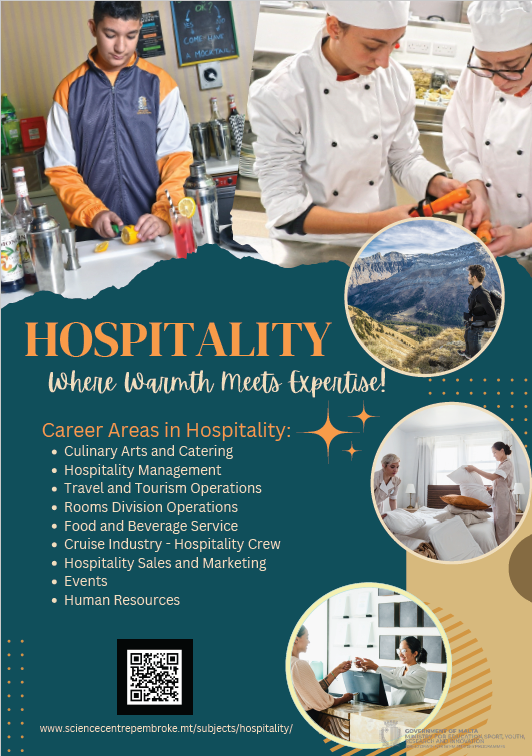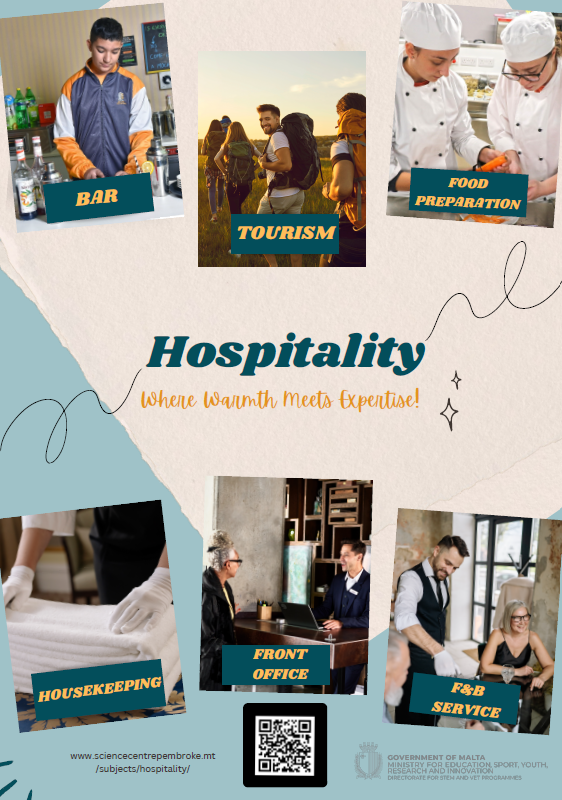
Hospitality is an option subject that focuses on the principles and practices of providing excellent service and accommodations to guests in various industries, such as hotels, restaurants, and tourism. The subject aims to prepare students for further studies within the hospitality sector.
Key topics covered in the Hospitality curriculum include:
- Customer Service: Understanding the importance of good customer service, communication skills, and conflict resolution to meet and exceed guest expectations.
- Tourism and Travel: Exploring the travel industry, destination management, and the impact of tourism on local economies and cultures.
- Hotel Operations: Learning about hotel operations, front office procedures, reservations, and housekeeping.
- Food and Beverage: Studying the various aspects of restaurant and foodservice operations, menu planning, food preparation, and beverage range.
- Safety and Hygiene: Emphasizing the importance of maintaining a clean and safe environment for both guests and employees, adhering to health regulations.
- Sustainability and Responsible Tourism: Focusing on eco-friendly practices and responsible tourism initiatives to minimize the environmental impact of the hospitality industry.
- Cultural Awareness: Recognizing and respecting diverse cultures and customs to ensure guests from various backgrounds feel welcomed and valued.
The Hospitality subject equips students with practical skills, theoretical knowledge, and a customer-centric mindset, preparing them for diverse career opportunities within the dynamic and ever-growing hospitality industry.
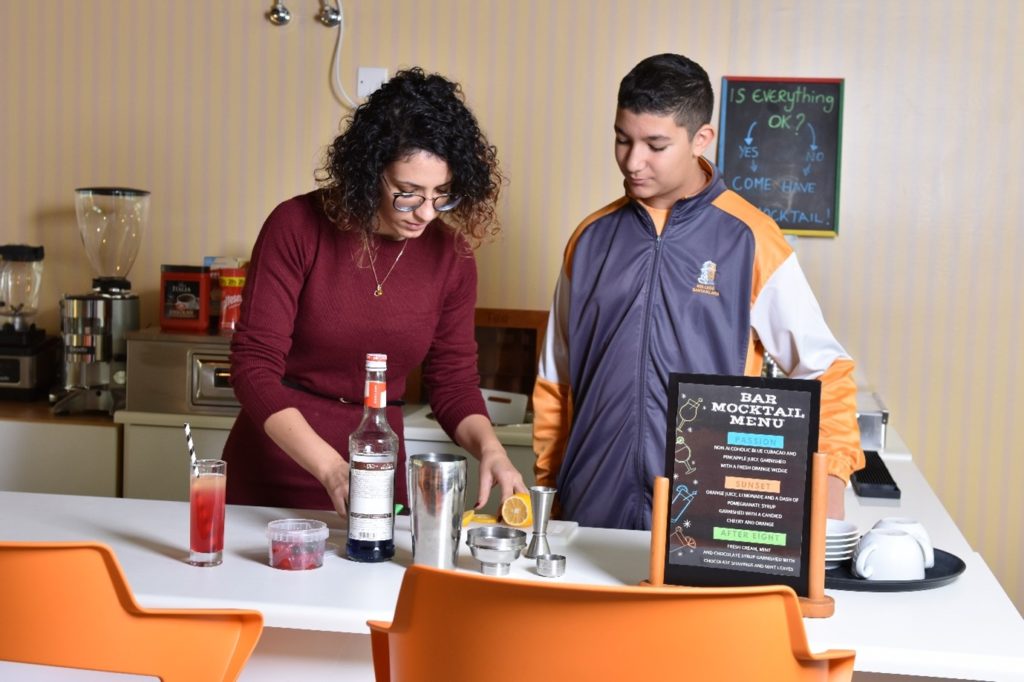
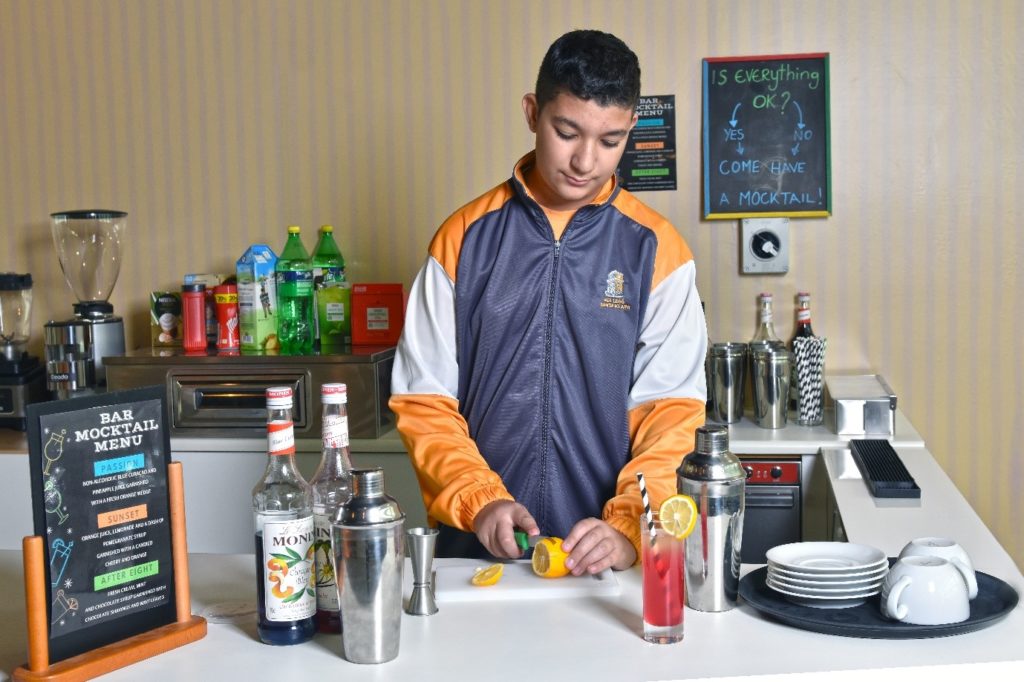
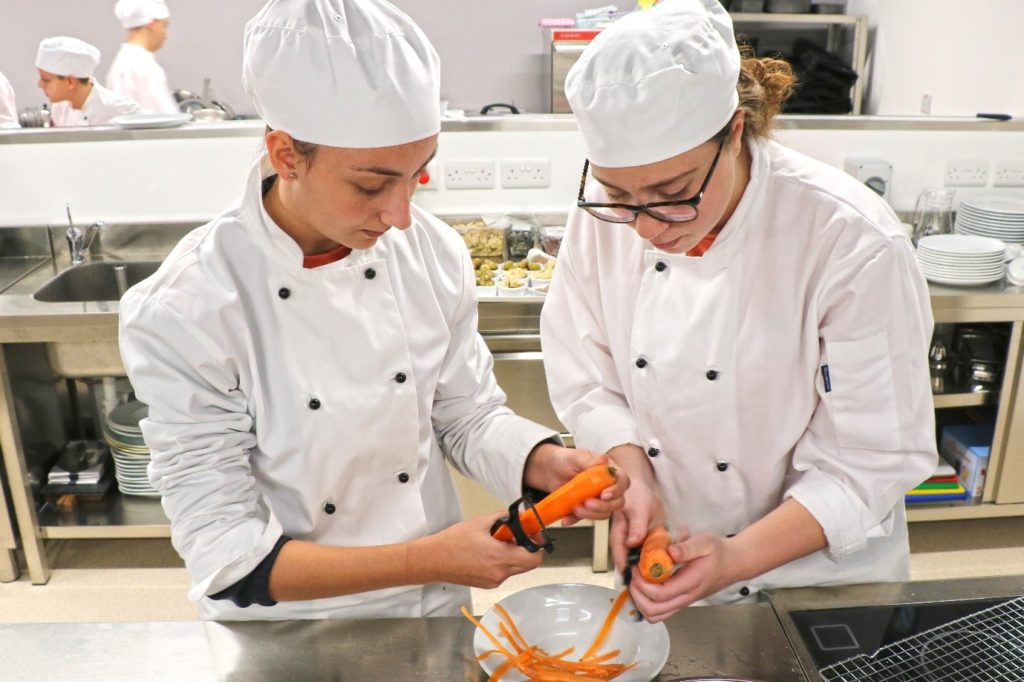
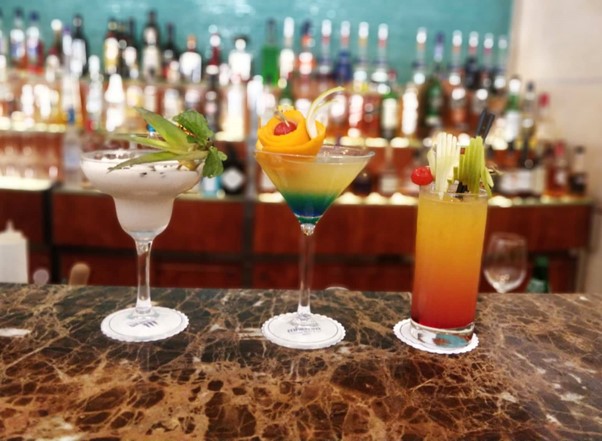
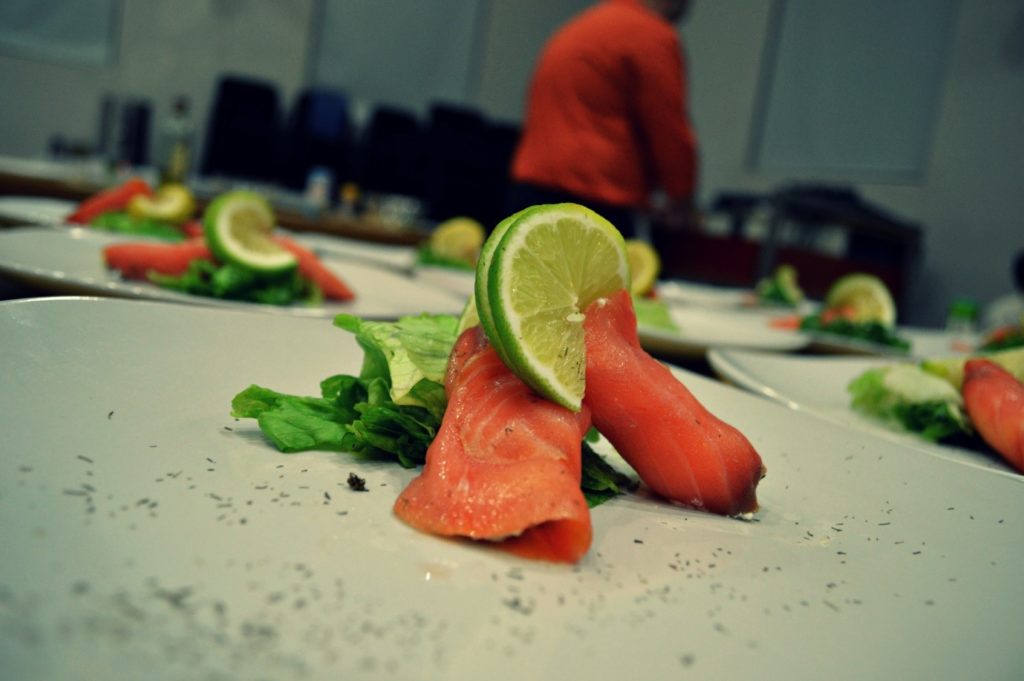
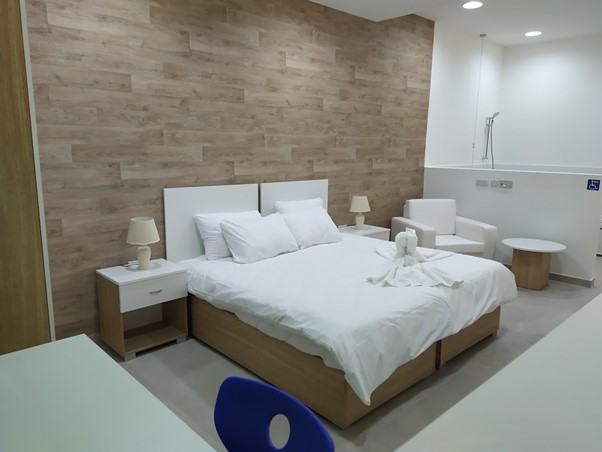
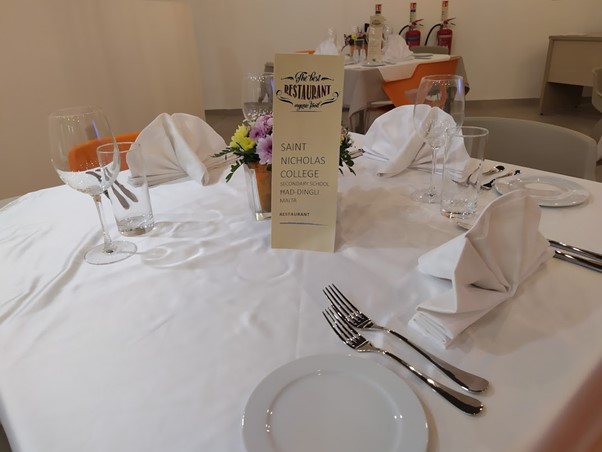
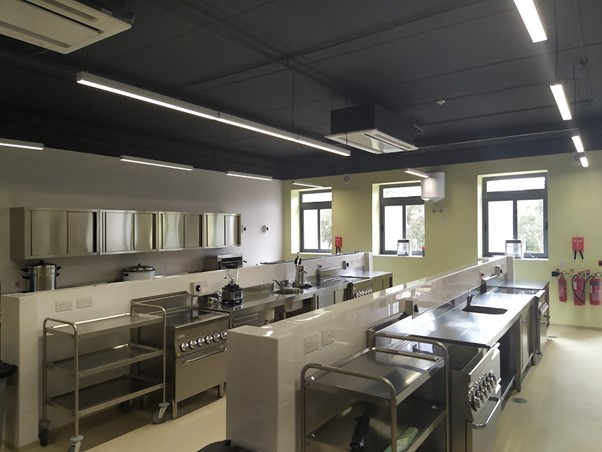
Technical Details
The Hospitality subjects is offered into two routes; the SEC Vocational Route (VET) and the Applied Route (AVC)
On the Vocational route, you’ll be able to explore more the world of tourism, indulge in basic food preparation techniques and embrace in the world of food and beverage and rooms division operations (Front office and HousekeepinG)
You will be able to explore the four main departments within the hotel industry, mainly the Food Preparation, Restaurant Operations, Front Office Department and Housekeeping along the three years.
So, here’s the exquisite part – you can choose your path! Whether it is the vocational or the applied route, you will experience the warmth of hospitality through expertise!
Topics studied in Vocational Hospitality
- Health and Safety at the workplace
- Risk Assessment
- Niche Tourism
- Tourism and Economy
- Job Roles within the Hospitality Industry
- Customer Care
- Itenerary Planning
- Food hygiene and contamination
- Catering for different dietary requirements
- Sauce Making
- Cutting techniques
- Plating techniques
- Desserts making
- Preparation of hot and cold beverages
- Restaurant service
- Table lay-ups and napkin foldings
- Dealing with complaints
- Housekeeping department opereations
- Preparing for the world of work
Topics studied in Applied Hospitality
- Booking Techniques
- Check-in procedures
- Customer Care
- Dealing with complaints
- Housekeeping trolley
- Preparing a room for service
- Towel folding
- Laundry techniques
- Sauce making
- Preparation of food
- Plating techniques
- Dessert making
- Cutting techniques
- Opening and closing procedures of a restaurant
- Service styles
- Restaurant service
- Upselling techniques
- Table lay-ups and napkin folding
How You’ll Show Your Skills!
In Hospitality, just like other subjects, we have a way of checking how pro you’re becoming! It’s called Assessment, and it’s not as complicated as it sounds.
For Vocational Hospitality
30% school-based assessment (SBA) based on practical tasks
30% coursework
40% written exam in year 11
By the end of the three years, you will obtain a SEC certification.
This is recognised in all post-secondary institutions including ITS, MCAST and Junior College.
For Applied Hospitality
A number of assessment tasks, mainly based on practical tasks carried out in class.
Each year one of the assessments will be issued centrally by DQSE.
By the end of the three years, you will obtain an Applied Vocational Certificate (AVC) result.
This is recognised in vocational post-secondary institutions meaning ITS and MCAST.
Hospitality Related Careers
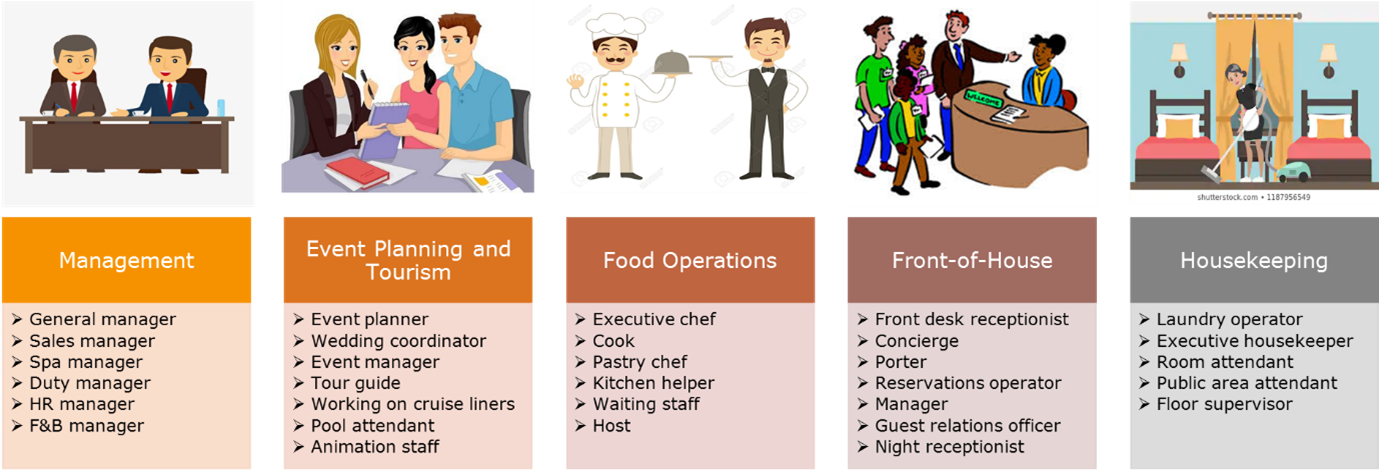
Useful links
Promotional content
